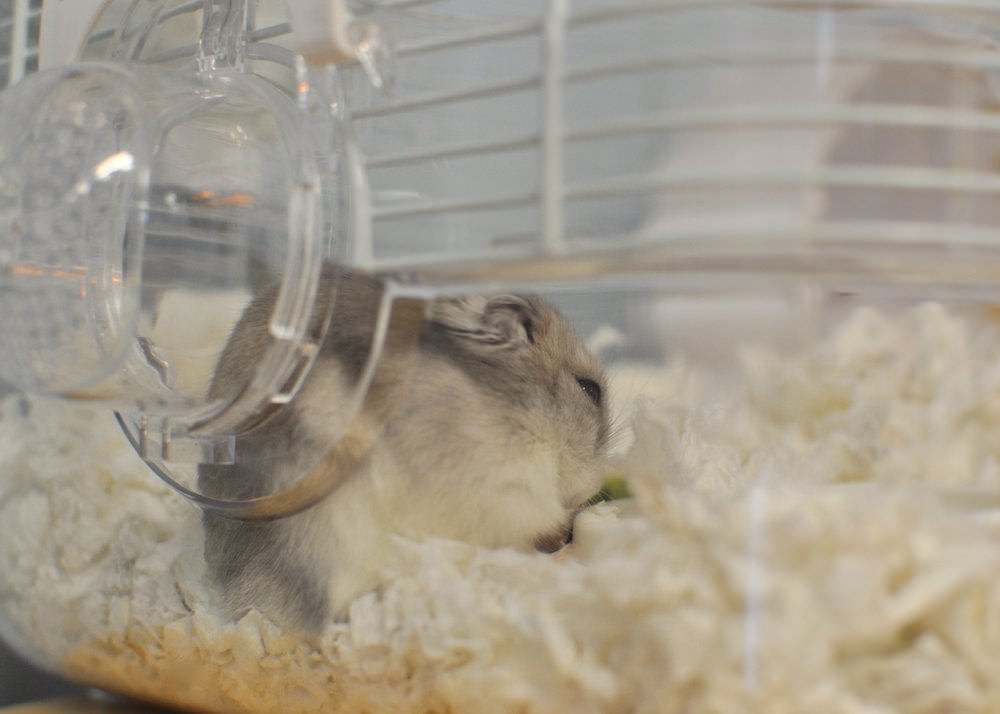The Role of Pets in the Montessori Classroom
 At Villa di Maria, there are plenty of living, breathing creatures who spend their time in the classrooms, and they aren't only the children! We shared the role of plants in the Montessori environment here; today, we will discuss the importance of our furry, scaly, shelled, and feathered friends. In every single classroom here at Villa di Maria, there is at least one pet. There is Monti the bearded dragon in P2, the new tortoise Syrup (RIP dear Molasses, you are missed) in Upper Elementary, Florence and Ulysses the leopard geckos in P1, Elvis the guinea pig also in P1, fish and hermit crabs and the budgie in P3, and many more!
At Villa di Maria, there are plenty of living, breathing creatures who spend their time in the classrooms, and they aren't only the children! We shared the role of plants in the Montessori environment here; today, we will discuss the importance of our furry, scaly, shelled, and feathered friends. In every single classroom here at Villa di Maria, there is at least one pet. There is Monti the bearded dragon in P2, the new tortoise Syrup (RIP dear Molasses, you are missed) in Upper Elementary, Florence and Ulysses the leopard geckos in P1, Elvis the guinea pig also in P1, fish and hermit crabs and the budgie in P3, and many more!

 Coral, the axolotl (originally left out of this post - Sorry, Coral!)
Coral, the axolotl (originally left out of this post - Sorry, Coral!) Aside from being cute and interesting to watch, pets bring a lot to a classroom. Having pets to care for helps teach responsibility, compassion, empathy, and an understanding and respect for other living things. Pets teach children to value life other than their own, in addition to teaching them about the natural growth and life cycles of many different species which they can observe on a daily basis! Another benefit is the stress reduction that occurs as a result of observing and petting the animals, from which both the children and the animals can benefit.
Aside from being cute and interesting to watch, pets bring a lot to a classroom. Having pets to care for helps teach responsibility, compassion, empathy, and an understanding and respect for other living things. Pets teach children to value life other than their own, in addition to teaching them about the natural growth and life cycles of many different species which they can observe on a daily basis! Another benefit is the stress reduction that occurs as a result of observing and petting the animals, from which both the children and the animals can benefit.
 The children at Villa di Maria care for their pets every day, including feeding them and providing them with fresh water, grooming them, and making sure their cages are clean and healthy. Most of this happens with the assistance of the adults in the classroom, of course, to make sure no one gets lost or hurt through over-excited handling. Two- and three-year-olds still need some guidance in how to be gentle, after all!
The children at Villa di Maria care for their pets every day, including feeding them and providing them with fresh water, grooming them, and making sure their cages are clean and healthy. Most of this happens with the assistance of the adults in the classroom, of course, to make sure no one gets lost or hurt through over-excited handling. Two- and three-year-olds still need some guidance in how to be gentle, after all!



 Studies have shown that watching fish swim in an aquarium has actual health benefits, including a reduction in blood pressure and heart rate. Additional studies have shown a reduction in anxiety and stress when people gaze at fish swimming in a tank. This information has the potential to help a young child who may feel anxious about separating from his parents to be in school during the day.
Studies have shown that watching fish swim in an aquarium has actual health benefits, including a reduction in blood pressure and heart rate. Additional studies have shown a reduction in anxiety and stress when people gaze at fish swimming in a tank. This information has the potential to help a young child who may feel anxious about separating from his parents to be in school during the day.
 Especially if a child has no experience at home with pets, exposure to a wide range of animal life in the classroom can benefit a child: from touching, observing, caring for, and making connections to the natural world, to understanding the delicacy and uniqueness of all life.
Especially if a child has no experience at home with pets, exposure to a wide range of animal life in the classroom can benefit a child: from touching, observing, caring for, and making connections to the natural world, to understanding the delicacy and uniqueness of all life.

